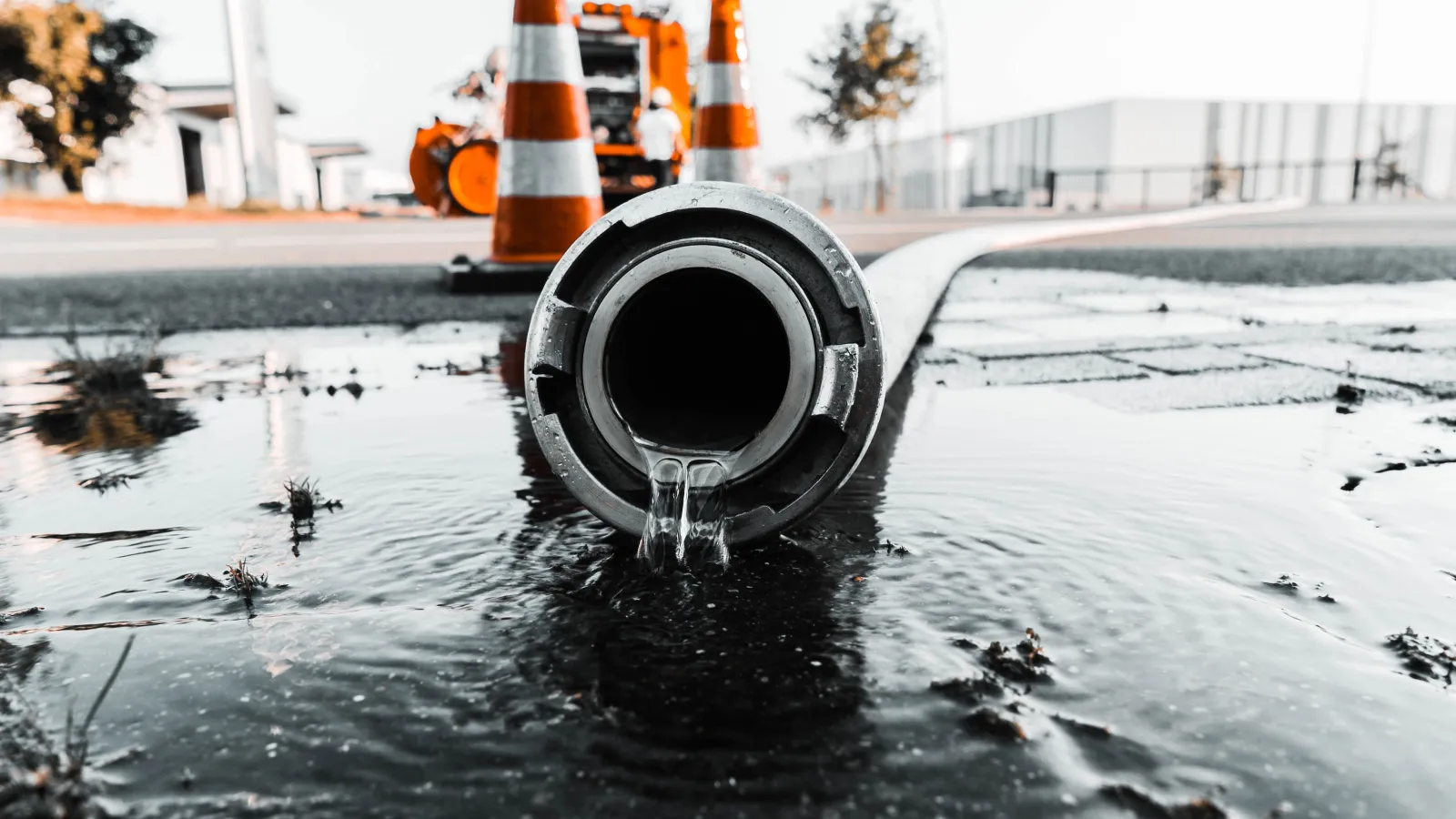What to Do If You Have a Leaking Pipe

Most people don’t think about the plumbing in their home as long as everything is flowing smoothly, but as soon as a problem becomes apparent it can be hard to ignore. Plumbing issues such as a leaking pipe can start out small but quickly turn into a big mess and expense if not caught or repaired right away. While a burst pipe is dramatic in its presentation, a slowly leaking pipe is often more subtle in making itself known.
How to Stop a Leaking Pipe
The first step in dealing with any leaky pipe remains stopping the leak until repairing or replacement takes place. You can do this by shutting off the water to the pipe. Depending on your home plumbing structure, the shutoff valve could be somewhere along the line of the leaking pipe. If not, shut off the main supply line inside your home. Typically, the main shutoff valve remains near your water meter.
Dealing with a leaky pipe depends on the underlying cause. For small leaks, try some epoxy paste or a waterproof tape to cover the hole until a plumber can come to assess and repair the damage.
Causes of Leaking Pipes
Leaking pipes are caused by a number of things, including:
- Pinholes in the piping.
- Excessive pressure within the pipe.
- Aging or corroded piping.
- Loose joints or connections.
- Poor workmanship.
- Clogs or obstructions.
- Rapid temperature changes.
- Tree roots intruding through the pipe.
- Any damage to the pipe.
Some causes of leaky pipes can be avoided, such as damage to the pipe and excessive temperature changes. However, most causes of leaky pipes are unavoidable and simply part of the maintenance associated with owning a home.
Signs of a Leaking Pipe
While a burst pipe will be quite obvious with the sudden onset of gushing water, a leaky pipe, especially one with a slow leak, might not be so obvious to homeowners. Some common, often subtle signs of a leaking pipe include:
- A water bill that is extremely and unexpectedly higher than normal.
- Curling, peeling, or loose flooring.
- Peeling paint.
- Wood surfaces with a chalky-looking appearance.
- Water stains or mould spots on joists, flooring, or drywall.
- Persistent mould issues.
- Dampness, visible puddles, or beading droplets of water.
Pipes in newer homes are often made of copper and are the preferred choice as they are less likely to spring a leak. Older homes are often plumbed with galvanized piping, which will corrode over time and need to be replaced. Because galvanized pipes corrode from the inside out, it can be very difficult to assess the condition of a pipe until a problem, such as a leak. Homeowners with galvanized plumbing should be prepared to replace multiple pipes after the first one springs a leak.
Fixing a Leaking Pipe
Homeowners with some renovation experience may be able to fix a leaking pipe themselves, depending on the root cause. However, it’s best to leave these sorts of home repairs to the professionals, as they can be quite complex. Depending on the work involved in the repair, you may also require a permit from your city or town. These permits are typically not expensive, but it’s good to be aware. Plumbing work may also require an inspection from municipal officials to ensure work has been completed to code and is safe.
Your approach to fixing a leaking pipe will also depend on the type of leak you have.
For leaks where the connection is loose or the seal has worn out, simply tightening the connection or replacing the seal should fix the problem. Some clogs may be easy enough for the homeowner to clear. Small pinhole leaks may also be within the abilities of a homeowner to repair themselves.
However, more serious causes of leaking pipes such as aging or corroded pipes, damage to the pipe, and tree roots intruding into a pipe will require the skills and expertise of a licensed plumber to repair.
Cost to Fix a Leaking Pipe
The cost of fixing a leaky pipe will vary depending on the extent of the repair required, what area of the country you live in, and the experience of the plumber you choose. A plumber may work on a per-project fee, or on an hourly rate. Damage caused by a leaking pipe can run into the thousands of dollars if not caught quickly and if major repairs to flooring, drywall, or other structures are necessary.
While it may be tempting to try to fix a leaking pipe yourself, given how significant your home’s plumbing system is to your overall comfort and well-being, it is best to leave these sorts of jobs to a qualified professional plumber.

